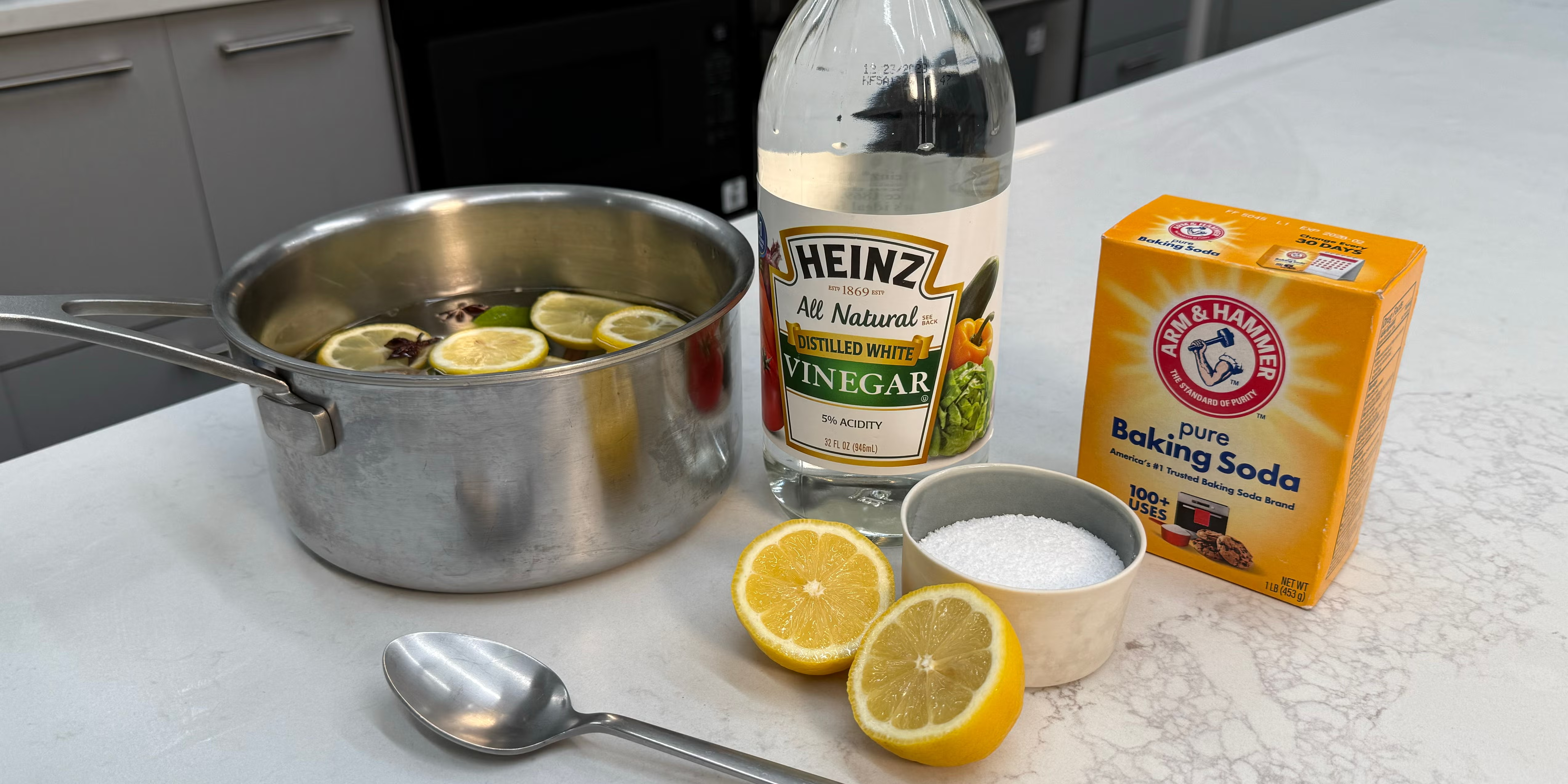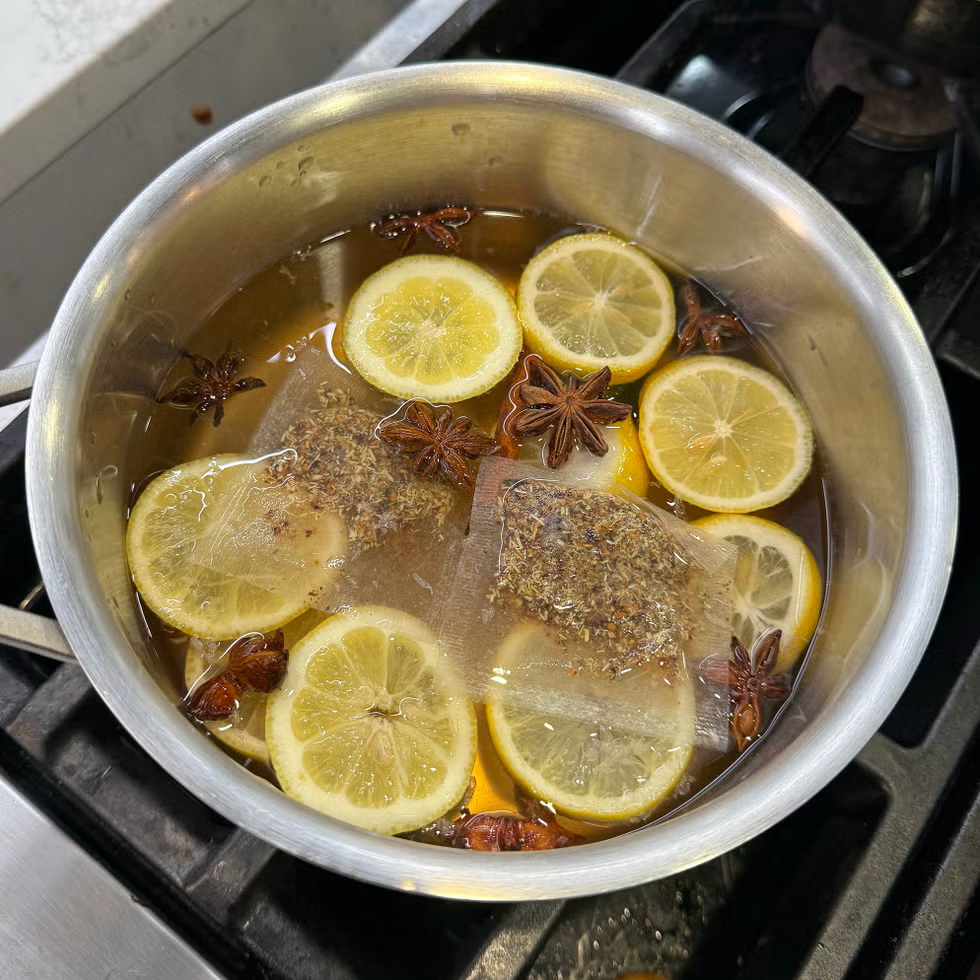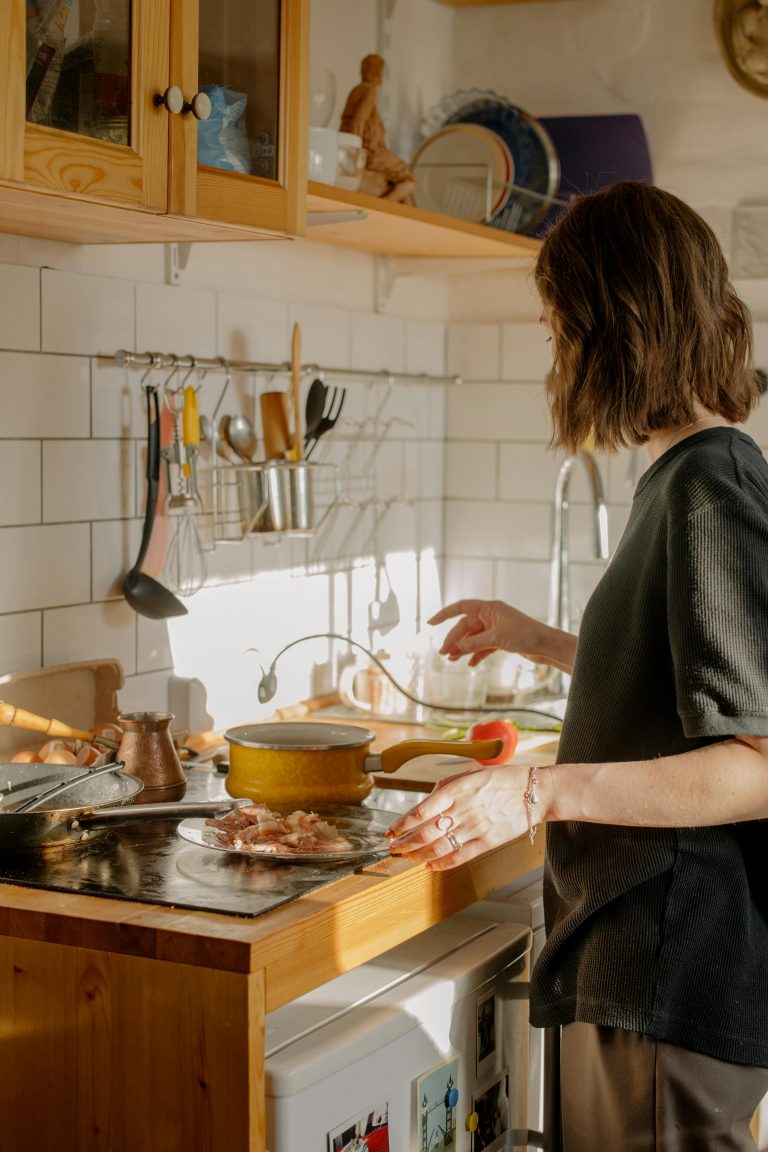From midweek curries to Friday’s fish and chips, and Sunday roasts, your kitchen is constantly filled with cooking odours. Some are still amazing after the meal, but most aren’t (fish and greasy bacon, we’re looking at you). Fortunately, there are many techniques you can use to reset your kitchen, in time for the next meal.
Find the source

The first, and most important step, is to find the source of the smell. Now, this might take some time, since many ingredients and certain equipment and appliances are naturally volatile, but here’s a quick list to get you started:
- The bin: The bin is my go-to when something smells in the kitchen. Ensure you’re cleaning it out at least once a week, and not just replacing the bag. Actually, scrub the bin container with warm, soapy water and dry it in the sun to help remove lingering trash odours. Take it one step further by sprinkling some bicarbonate of soda at the bottom of the bin container, before you replace the bag. It will neutralise any odours missed and help prevent future smells wafting through the kitchen every time you throw something away.
- The sink: Our sinks go through the most: dishwashing, leftover beverages, draining pasta, grains and boiled veg, and cleaning ingredients. Food and beverage bits will inevitably get stuck somewhere in the sink, causing unwanted odours. Ensure you deep-clean your sink at least once a week with hot, soapy water (scrub all the surfaces and crevices, especially the plug and underneath the tap). Afterwards, use a probiotic drain cleaner to help rid the sink’s drain of food bits and unwanted odours. If it’s really bad and you’re in a hurry, pour a tablespoon or two of bicarb down the drain, followed by a mixture of vinegar and hot water.
- The extraction fan & hood: Extraction fans and hoods are a blessing in the kitchen, and actually help with collecting and getting rid of excess steam, smoke and odours from the stovetop. However, they too need some help. Odours, grease, and soot build up in the hood of an extraction fan. Follow the manufacturer’s instructions on how to clean them, or call in a professional to assist you.
- Kitchen compost bin: No surprises here. Compost bins are literally packed with veggie and fruit scraps that start to decompose. If you can, consider placing it just outside of the kitchen, by an open window, or in the freezer.
How to get rid of cooking odours

If the source of the odour is not one of the above, the source most likely stems from cooking foods. Here are a few tips to neutralise hard-to-bust kitchen stinks:
- Leave a bowl of bicarbonate of soda out overnight: Bicarb is notorious for its ability to absorb and neutralise odours. Leaving a small bowl with a couple of tablespoons of bicarb out in the kitchen counter overnight should help bust smells.
- Open your windows and doors: The best remedy for odours is fresh air. Open your windows and doors of the kitchen and adjacent rooms to allow fresh air to waft through.
- Simmer a stovetop potpourri: One of my favourite methods (especially for smaller kitchens) is simmering volatile herbs and spices in water on the stove. In a small pot, add a cup of water and your favourite aromas. The best stink-busters include fresh lemons, rosemary, cinnamon, and cloves. Use one or make a mix, and simmer for a couple of hours.
- Coffee grounds: A great alternative to bicarb is coffee grounds. They fill the space with that distinct coffee aroma while absorbing other odours. Fill a small bowl with a few tablespoons and leave it on the kitchen counter or stovetop overnight.
- Vinegar steam: Similar to our potpourri on the stovetop, simmer an equal mixture of water and vinegar (plain white vinegar will do, but so will apple cider) for a couple of hours on medium-low heat. The vinegar steam helps to neutralise odours. The kitchen may smell like vinegar for a few hours afterwards, but there won’t be any foul smells following it.
Kitchens are meant to smell like the meals and memories we make in them. But when those odours linger a little longer than we would like, a reset is in order. Tackle the source and then use a neutraliser that suits your space and schedule. With a few small habits – from weekly bin scrubs to stovetop simmers – you can keep your kitchen fresh and ready for whatever meal you whip up next.
Also See: How to make every room smell amazing
How to make every room smell amazing

